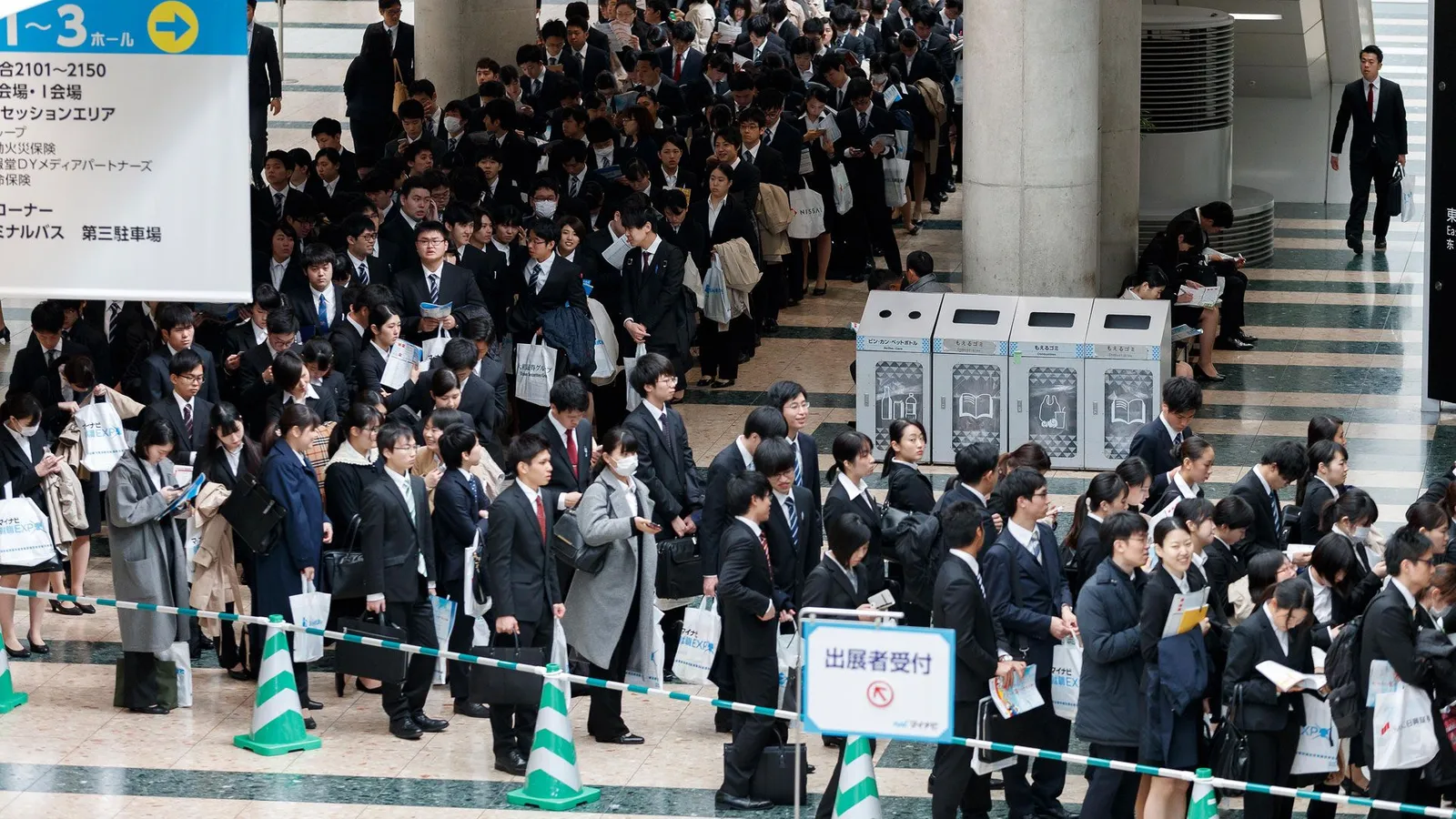It's shūkatsu season in Japan, when trains and job fairs are packed with fresh almost-graduates in matching 'recruit suits', battling for corporate entry-level intakes that only enrol at the same time each year.
In the rest of the world, job searching is more ad hoc and opportunistic. Job-seekers can trawl through the classifieds any time, or even cold-call, to get results.
But not Japan. If you end shūkatsu without an informal offer (内々定 nainaitei) in your final year of uni then you've missed the bus. Likely forever.
Even when Japanese companies recruit overseas there can be a hint of the practice. I found it odd that the English school I used to work for had fixed intake periods despite a constant need for fresh blood.
Shūkatsu at first glance is yet another example of dogmatic adherence to detrimental traditions. Companies miss out on better fitting candidates at other times, and let's face it, an HR department that can only onboard once or twice a year needs to take a long hard look at itself. Plus for candidates, spending hours sitting up straight, trying to look awake alongside clones of yourself can't be good for the soul.
However, I'm one of those who believe that all traditions serve a purpose. Perhaps not a good one, but a purpose nonetheless. In shūkatsu's case, I don't think it's about finding talented people, but instead a throwback to the postwar period when work was plentiful and living people were scarce.
Being one applicant among few gives you a lot more bargaining power than being one among many. So companies colluded to concentrate the supply of labour at a particular time. Throw in some chum about grooming for lifetime employment and bam, they frenzy. You can land 'em even without bait on your hook.
It's a pity that those unsuccessful at shūkatsu tend to see themselves as having failed in the system, rather than seeing a system set up to fail everyone.

Comments
Post a Comment